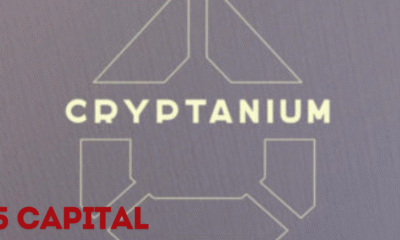Business
Japan’s Stock Market Soars Following Historic Budget Proposal

Japan’s stock market experienced a significant uptick as the government unveiled a record budget proposal aimed at stimulating economic growth. The Nikkei 225 index rose sharply, reflecting investor optimism about the government’s commitment to bolster the economy amid rising inflation and global economic uncertainties.
Key Takeaways
- Japan’s Nikkei 225 index surged following the announcement of a record budget.
- The proposed budget aims to stimulate economic growth and address inflation concerns.
- Rising corporate service inflation is influencing the Bank of Japan’s monetary policy decisions.
Government’s Record Budget Proposal
The Japanese government has proposed a historic budget for the upcoming fiscal year, which is expected to exceed 110 trillion yen (approximately $1 trillion). This budget is designed to address various economic challenges, including rising inflation and the need for increased public investment.
The budget proposal includes significant allocations for:
- Infrastructure development
- Social welfare programs
- Defense spending
- Green energy initiatives
This ambitious plan is seen as a response to the ongoing economic pressures and aims to foster a more resilient economy.
Impact on the Stock Market
Following the announcement, the Nikkei 225 index closed higher, reflecting positive investor sentiment. Analysts believe that the government’s proactive approach to economic management is crucial in maintaining market stability.
The rise in stock prices can be attributed to:
- Increased investor confidence in government policies.
- Anticipation of economic growth driven by public spending.
- A favorable environment for corporate earnings as inflationary pressures are addressed.
Inflation and the Bank of Japan’s Response
Recent data indicates that Japan’s corporate service inflation has risen to 3.0% in November, marking the highest level since March 1995. This increase is significant as it suggests that businesses are beginning to pass on higher costs to consumers, a trend that the Bank of Japan (BOJ) is closely monitoring.
The BOJ’s current stance on interest rates remains cautious, but the rising inflation could prompt a reassessment of monetary policy in the near future. Key points regarding the BOJ’s position include:
- The central bank ended negative interest rates in March 2024.
- A potential rate hike to 0.50% is anticipated by the end of March 2025.
- The BOJ will review wage growth data to determine future rate adjustments.
Conclusion
Japan’s stock market rally following the government’s record budget proposal highlights the importance of fiscal policy in navigating economic challenges. As inflation rises and the BOJ prepares for potential rate hikes, the government’s commitment to stimulating growth will be crucial in shaping the future of Japan’s economy. Investors will be watching closely as these developments unfold, seeking opportunities in a dynamic market environment.
Sources
-

 Press Release7 days ago
Press Release7 days agoCV5 Capital Announces Standout Performance of Cryptanium Fund I SP, Beating Industry Benchmarks
-

 Business4 days ago
Business4 days agoS&P 500 Soars in Best May in Decades Amid Tariff Relief and Nvidia’s Surge
-

 Government7 days ago
Government7 days agoExperts Warn of U.S. Slide Towards Authoritarianism Under Trump Administration
-

 Healthcare5 days ago
Healthcare5 days agoAttention Economy Arms Race: Reclaim Your Focus in a World Designed to Distract You
-

 Immigration4 days ago
Immigration4 days agoTrump’s Immigration Crackdown: Legal Battles and Policy Shifts
-

 Business3 days ago
Business3 days agoUS Stock Market Soars in May Amidst Tariff Tensions and Inflation Worries
-

 Government4 days ago
Government4 days agoTrump Administration’s Government Reshaping Efforts Face Criticism and Legal Battles
-

 Business4 days ago
Business4 days agoTrump’s Tariffs: A Global Economic Reckoning










